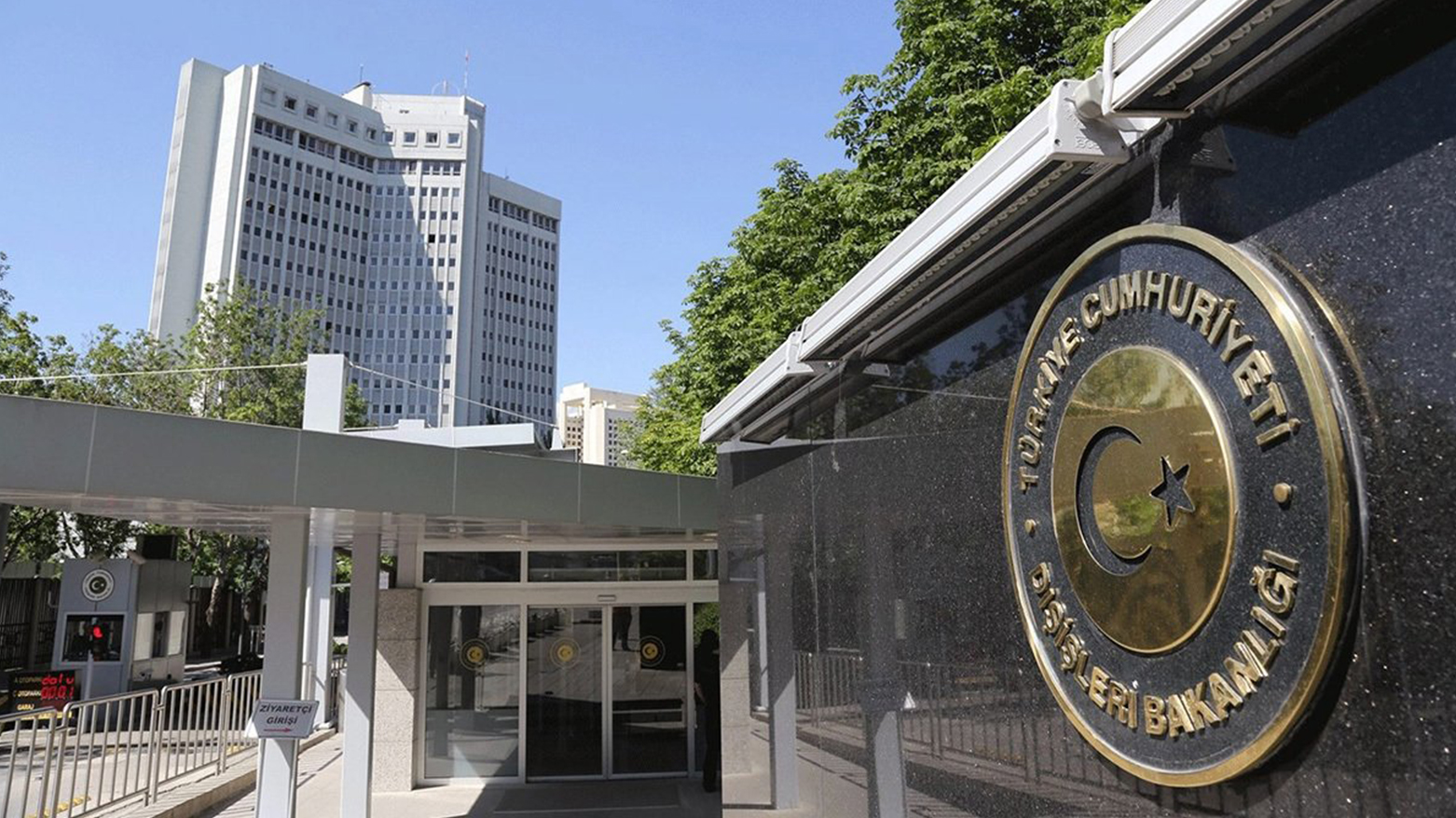Türkiye Voices Concern Over Sulaimani Clashes, Cites Regional Stability
Türkiye voices concern over Sulaimani clashes that led to the arrest of Lahur Jangi and drew sharp criticism from a human rights body over the use of military-style force.

ERBIL (Kurdistan24) – The Turkish Ministry of Foreign Affairs announced on Friday that it is closely monitoring the recent violent developments in Sulaimani, underscoring the city's importance for the stability of Iraq and expressing concern for the safety of its citizens in the area. The statement from Ankara adds an international dimension to an internal security crisis that has already drawn sharp condemnation from human rights organizations and urgent calls for de-escalation from the Kurdistan Regional Government.
In its official communication, the Turkish ministry articulated a position of watchful concern. "We are closely and carefully monitoring the developments in the city of Sulaimani, which are of great importance for the stability and peace of Iraq, as well as for the safety of our citizens," the statement read.
Ankara also outlined the practical steps its diplomatic mission is taking in response to the unrest, adding, "In this context, our Consulate General in Erbil is working to contact the relevant local authorities to ensure that necessary measures are taken to protect the safety of our citizens."
The international attention follows a turbulent night of fighting and clashes between forces of the Patriotic Union of Kurdistan (PUK) and those affiliated with Lahur Sheikh Jangi.
The escalation prompted an immediate response from Kurdistan Region Prime Minister Masrour Barzani, who stated that "these tensions and clashes occurring in Sulaimani target the security and stability of the Kurdistan Region." The Prime Minister deemed it necessary for "all sides to exercise restraint, for the clashes to be stopped immediately, and for the youth of this country not to be made victims," emphasizing that any existing dispute must be resolved through legal channels.
The operation at the heart of the crisis unfolded over a tense 12-hour period, culminating on Friday morning with PUK forces seizing control of the Lalezar Hotel—Lahur Sheikh Jangi’s main headquarters—and arresting him and his brother, Polad. The resolution came after armed men affiliated with him surrendered, ending hours of heavy gunfire that had transformed parts of Sulaimani, particularly the Sarchnar neighborhood, into a conflict zone.
The legal justification for the large-scale raid was established hours earlier when judicial and police authorities confirmed an arrest warrant had been issued for Lahur Sheikh Jangi and "several other suspects" under Article 56 of the amended Iraqi Penal Code, which pertains to criminal agreements and acts that harm public security. Following this, a large PUK force, equipped with tanks and armored vehicles, deployed after midnight and advanced on the Lalezar Hotel.
The tense standoff erupted into open conflict shortly after dawn, with reports of heavy weapons and rockets being used in the attack. The confrontation widened in scope when the headquarters of the PUK's Force 70 Command was reportedly attacked by a bomb-laden drone.
In the wake of the operation, the Independent Human Rights Commission in the Kurdistan Region issued a sharp and detailed condemnation of the methods employed. The rights body characterized the use of counter-terrorism forces and heavy weaponry to execute an arrest warrant as an inappropriate "military display" that sowed fear among the public and would have a "bad reflection on the reputation of the region."
The commission’s statement lamented that "a fierce confrontation and a four-hour battle took place," resulting in deaths and injuries and creating "great unrest in the city of Sulaimani." While fully supporting the implementation of court decisions, the commission unequivocally rejected the manner in which the arrests were conducted.
It pointed out a critical procedural flaw, stating, "the implementing force for the arrest warrant is the police, not counter-terrorism forces and other forces." The statement deplored the use of "tanks, Doshkas, and heavy weapons" in the operation.
Furthermore, the human rights body raised serious concerns about post-arrest procedures, noting that according to legal protocol, accused individuals must be taken to official detention and transfer centers, "not to another place or party headquarters." The commission also expressed profound concern over the public portrayal of the arrested individuals after videos and photos were broadcast by media outlets showing them handcuffed and referring to them as "captives."
The commission underscored a fundamental legal principle: "the accused is innocent until the crime is decided and proven against them by the court, and it is not permitted, for the sake of human dignity, for such a situation to be displayed."
The clashes represent the latest and most violent chapter in a long-running internal PUK power struggle. Lahur Sheikh Jangi, a former co-president of the party, was formally expelled in November 2021 after his cousin, Bafel Talabani, consolidated his control.
Since then, Lahur has founded a new political party, the People’s Front. The violent nature of his arrest has now placed the methods of the security forces under intense scrutiny, raising significant legal and human rights questions while drawing the concerned attention of neighboring countries.
